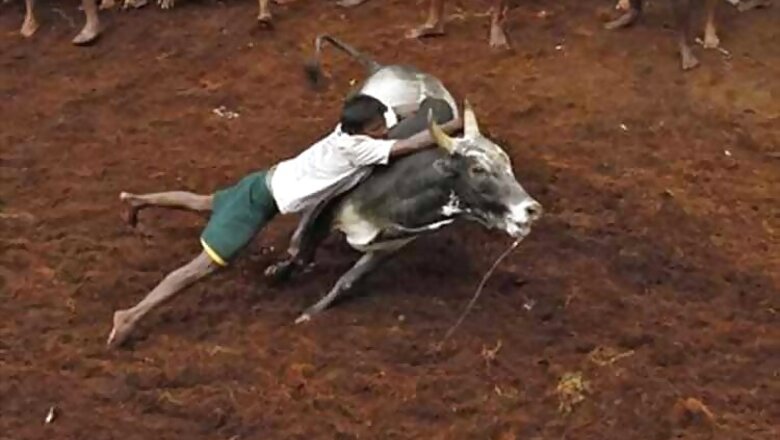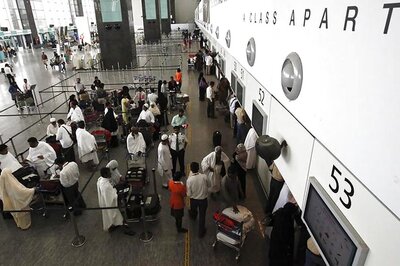
views
Chennai: Just three weeks before Tamil Nadu’s Pongal festival, and roughly six months to go Assembly elections, the Centre is thinking of allowing the return of Jallikattu, the bull taming festival that the state celebrates a day after Pongal. The bull taming festival had been banned by the Supreme Court in May 2014, but now has got a thumbs up from all political parties.
Union Minister of Environment and Forests Prakash Javadekar has backed it calling it a tradition. He said, "These are traditional practices. We want to respect that but also ensure that there is no cruelty. You will hear good news in a few days."
Javadekar’s plan to bring back the Jallikattu on the premise that it’s an integral part of Tamil Nadu’s culture has got almost all political parties smiling. Though animal rights activists who have been campaigning for years against this festival are smarting at the thought.=
On the other hand the ruling AIADMK and the opposition DMK are claiming credit for Jallikattu’s return.
An AIADMK spokesperson said, "Jaya had lobbied for reintroduction of Jallikattu in her correspondence with Prime Minister Narendra Modi."
DMK spokesperson A Saravanan also welcomed it. He said, "We believe the stand of Centre will address the issue."
But the return of this festival is being seen as a way to appease the voters ahead of elections.
The story so far:
* Between 2008 and 2014, the Supreme Court had allowed Jallikattu within specific guidelines and had asked for close monitoring.
* Jallikattu was finally banned in May 2014, after petitions by many animal rights organisations against it.
* Even if they are part of Indian tradition, bull fights, races and such fests cannot be above the law, the SC had observed.
* Any decision on this can only be taken after consulting with Animal Welfare Board, an advisory body, SC had ordered.
Animals rights activists say the Centre’s current plan violates the Supreme Court order. Dr. Chaitanya K of PETA India criticises the move. Over 1,100 people were injured and 17 killed between 2010 and 2014, when it was allowed. Three bulls had also died and 12 severely injured. Almost all bulls which were part of this ritual suffered beatings, stabbings and punches.


















Comments
0 comment